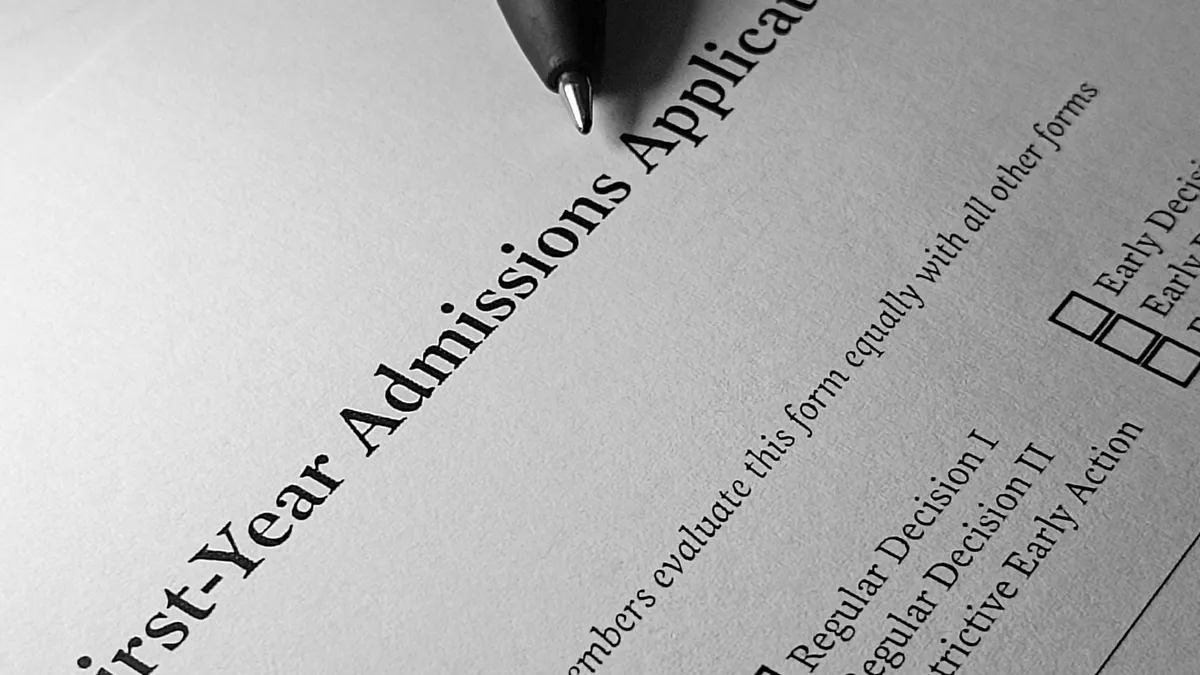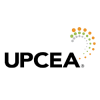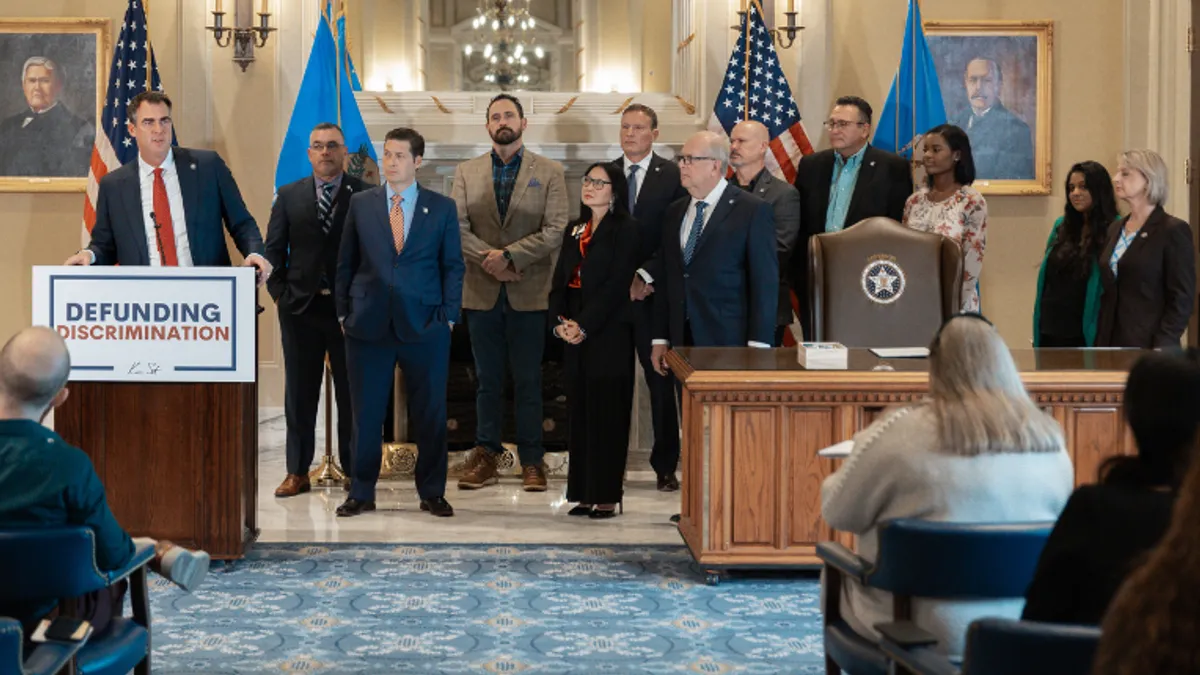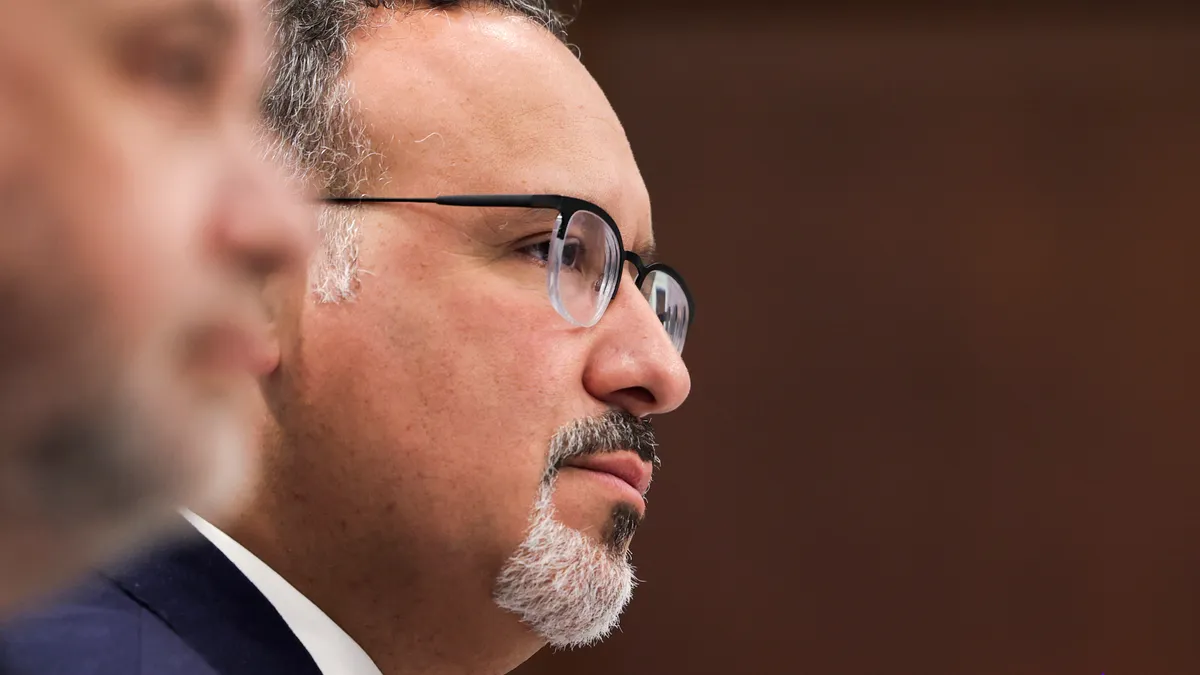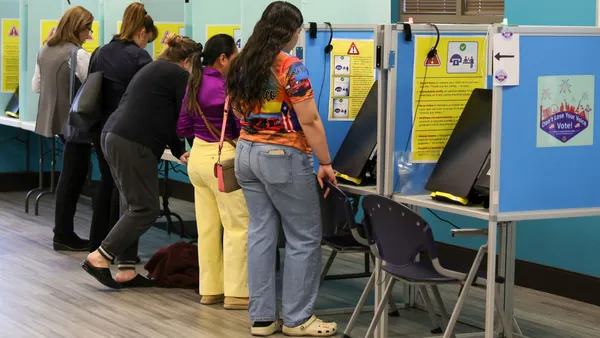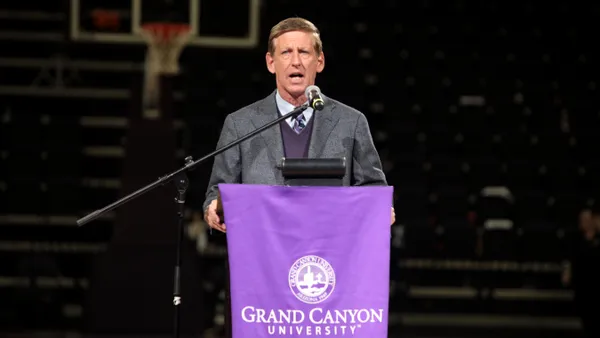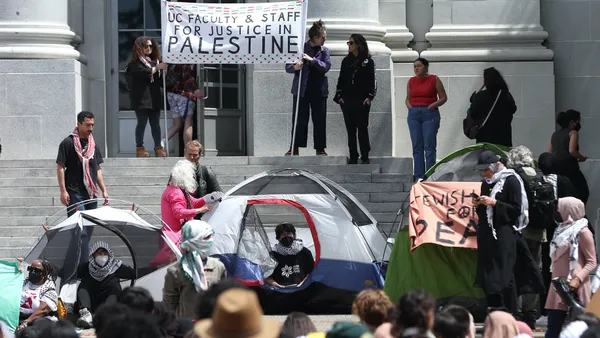Scrutiny on colleges’ legacy preferences has intensified since the U.S. Supreme Court struck down race-conscious admissions practices in June.
That’s because research shows legacy admissions — in which colleges give preference to applicants related to their alumni — tends to favor White and wealthy students.
Wealthy legacies get an especially large boost. One recent study showed high-income legacy applicants had a fivefold higher admission rate to the Ivy League and other selective institutions than similarly qualified students.
Below are three new developments on legacy admissions as institutions and policymakers alike decry the practice.
Georgetown University students, employees petition against legacy rules
Students, faculty and alumni of Georgetown University, a highly selective Washington, D.C. institution, have revived a petition against its use of legacy admissions.
A similar effort emerged in 2020 but was unsuccessful.
The authors of the new petition, which attracted over 340 signatures as of Friday morning, wrote they’re “deeply concerned with the inevitable impact on diversity and inclusion in admissions and on campus” following the Supreme Court decision against race-conscious admissions.
Georgetown President John DeGioia issued a statement in June expressing disappointment in the ruling and said the university will continue to recruit, enroll and support students from varying backgrounds.
However, a report produced this year by Georgetown’s own Center on Education and the Workforce said selective institutions should abandon legacy preferences to achieve more ethnic and racial diversity.
That same report stated alumni “can be counted on” to oppose ditching legacy preferences and could threaten to withhold donations “because they regard their alma maters’ preferences for even the most lackluster legacy applicants as a well-deserved reward for families’ institutional loyalty.”
At least one institution that nixed legacy policies, Johns Hopkins University, didn’t see any changes in alumni donor activity, an institution official told NPR in 2020. And some research shows legacy preferences don't translate into significantly higher alumni donations.
A Georgetown spokesperson did not immediately respond to a request for comment Friday.
Carleton College gets rid of legacy preferences
Carleton College, a highly selective private liberal arts college in Minnesota, announced Thursday that it would no longer use legacy preferences.
The college had not much relied on legacy policies in their processes, President Alison Byerly said in a public statement.
But legacy preferences “at times merited a slight advantage within a pool of academically qualified applicants,” Byerly said. She said roughly 6% to 9% of the class typically has a parent who attended Carleton.
“We do recognize that this change may be disappointing to alumni with children who will soon be reaching college age, especially alumni of color who are better represented in today’s parental cohorts than was the case decades ago,” Byerly said.
Carleton had an admit rate of 17% for fall 2022, according to federal data. At that time, a little over half of its students were White, 10% were Asian, 9% were Hispanic or Latino, and 7% were Black or African American.
Pennsylvania senator seeks to ban legacy policies
Sen. Anthony Williams, a Democrat in the Pennsylvania Legislature, said recently he would propose legislation that would ban legacy preferences at colleges in the state, both public and private.
The Supreme Court ruling emphasized the importance of merit-based admissions, and barring legacy policies would do just that, Williams argued in a public statement in July.
“There is no justification for continuing the practice of legacy admissions into the future,” Williams said, urging lawmakers to sign onto his bill.
Colorado became the first state to disallow legacy practices in 2021. States like New York, as well as federal lawmakers, have introduced similar legislation, though these measures haven’t gained traction.



